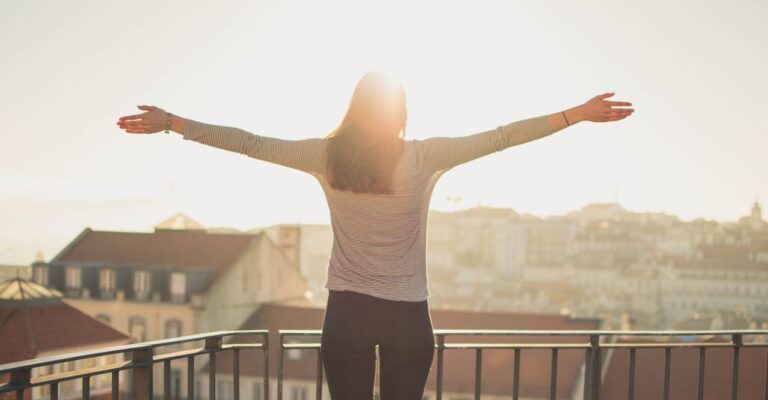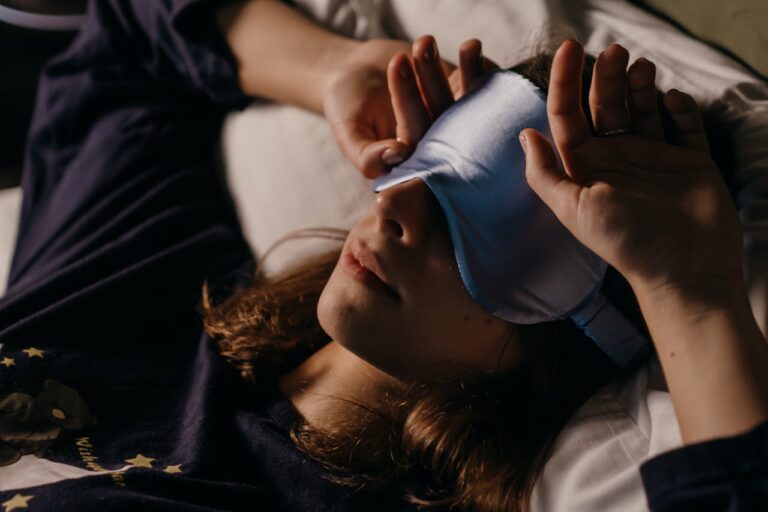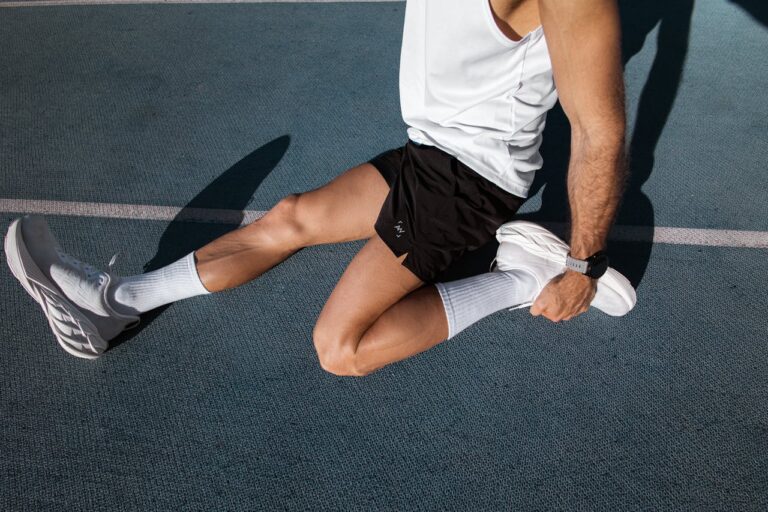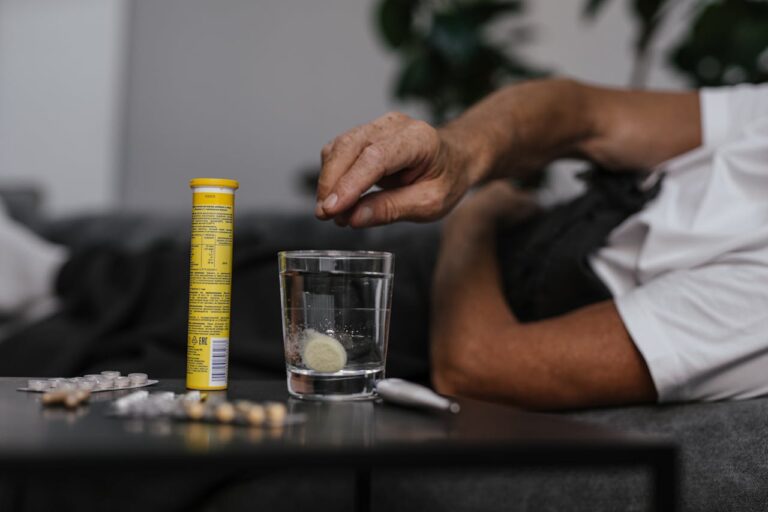Write Us: hello@ali5.org
How Blue Light Messes With Your Sleep, Skin, and Sanity. And What Actually Helps
Blue light exposure affects your sleep, skin, and mental clarity. Learn how it disrupts your body and discover what actually helps you recover from the damage.
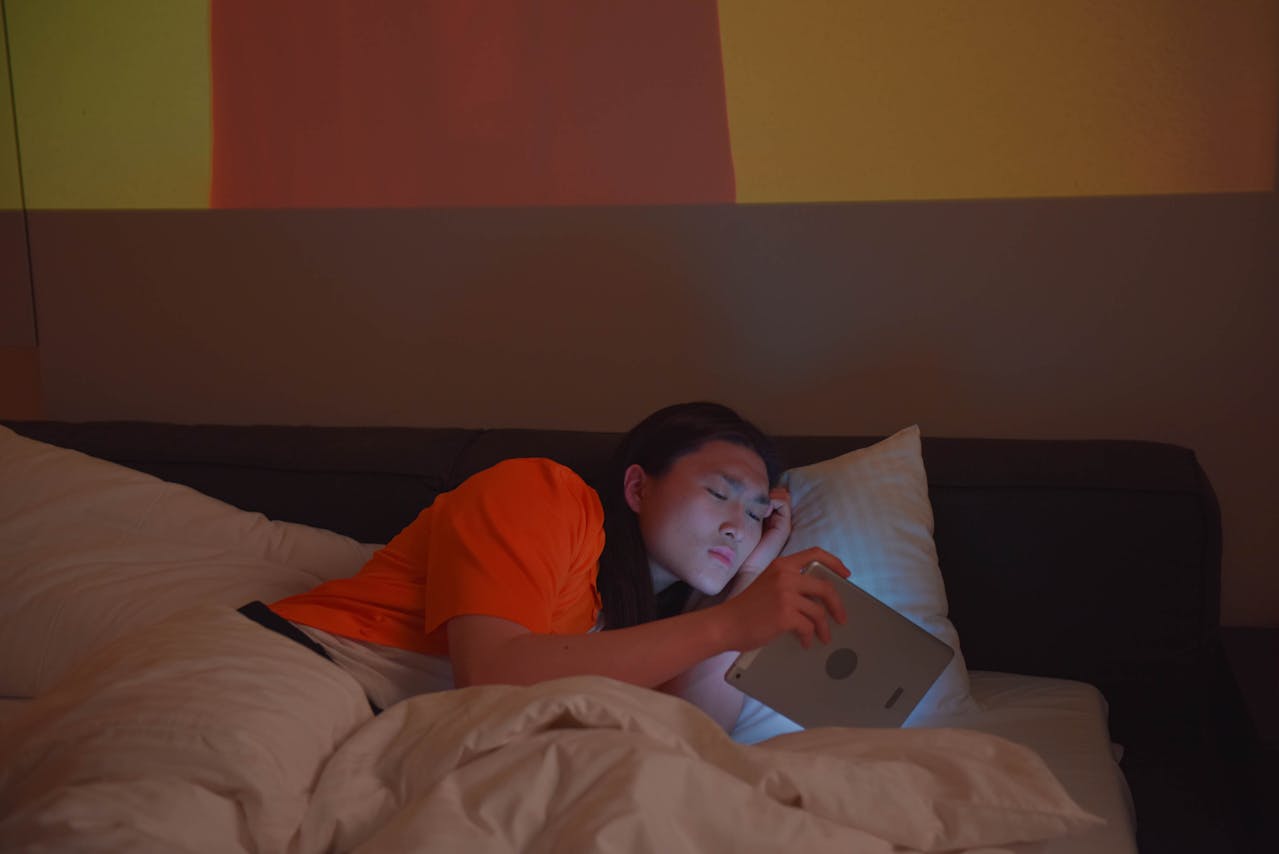
Let’s be honest: we’re all glued to screens. From phones and laptops to TVs and tablets, the glow of blue light is everywhere. And while we’ve all heard vague warnings about how it “might not be good for you,” most people still scroll in bed, binge late into the night, and take work calls without blinking.
But here’s the thing, blue light is messing with you. More than you think. It’s not just ruining your sleep; it’s also affecting your skin and, believe it or not, your mental health. Let’s break down what blue light really does to your body, and what you can actually do about it (without tossing your phone in the trash).
First, What Is Blue Light?
Blue light is part of the visible light spectrum. It has a short wavelength, which means it emits more energy than warmer colors like red or orange. You’ll find it naturally in sunlight, which is why it’s not inherently evil.
The problem starts when we bathe ourselves in artificial blue light, especially at night, through screens, LED lighting, and digital devices. Our bodies aren’t wired to handle that kind of exposure after sundown.
1. Blue Light and Sleep: Why You Can’t Fall Asleep (or Stay Asleep)
Let’s start with the most obvious problem: sleep. Blue light interferes with melatonin, the hormone your brain releases in response to darkness. Melatonin helps regulate your sleep-wake cycle, and when it’s suppressed by blue light exposure, your body basically gets tricked into thinking it’s still daytime.
The result?
-
You stay awake longer.
-
Your sleep becomes lighter and less restorative.
-
You wake up feeling groggy, even after 8 hours.
According to research from Harvard, just 2 hours of blue light exposure at night can delay melatonin release by up to 3 hours. That’s why scrolling on your phone before bed makes it harder to fall asleep, even if you’re exhausted.
2. Blue Light and Skin: Yes, It’s Aging You
Most people assume screen time only strains the eyes. But here’s something you might not know: blue light also affects your skin.
It penetrates deeper than UVB rays and can cause:
-
Oxidative stress, which leads to premature aging
-
Breakdown of collagen, the protein that keeps skin firm
-
Hyperpigmentation, especially for those with darker skin tones
A 2018 study found that just 60 minutes of exposure to blue light can increase skin inflammation and cell shrinkage. So yes, your late-night Instagram scrolls might actually be adding to your wrinkles and uneven tone.
If you already deal with acne or skin sensitivity, blue light can make flare-ups worse by promoting free radicals that stress out your skin.
3. Blue Light and Mental Health: The Unexpected Side Effect
Here’s where it gets more serious. Constant blue light exposure, especially without breaks, can mess with your mental clarity, focus, and mood.
You might notice:
-
Feeling more irritable or anxious
-
Trouble concentrating during the day
-
Low-grade headaches or eye strain
-
Brain fog after long screen sessions
This isn’t just burnout, it’s your brain reacting to an overexposure of artificial light. Your circadian rhythm is tied to light and dark cycles. If your brain never gets the “it’s nighttime now” signal, it stays in a semi-alert state. Over time, this disrupts cortisol levels and emotional regulation.
Translation: too much screen time can make you feel tired, wired, and stressed, often all at once.
So… What Actually Helps?
Okay, now for the part you’ve been waiting for. You don’t need to live in a cave to protect yourself from blue light, but you do need to be intentional. Here’s what actually works:
1. Use Night Mode and Blue Light Filters
Most devices now come with a Night Shift, Night Light, or Eye Comfort mode. These reduce blue light and shift your screen’s color tone to warmer hues after sunset.
Also helpful:
-
Install apps like f.lux on your laptop or desktop.
-
Use blue light filtering screen protectors on phones and tablets.
-
Adjust brightness manually in dark environments.
Bonus: These changes are small but make a huge difference in how your eyes and brain feel by bedtime.
2. Limit Screen Time Before Bed (Yes, Really)
The best rule: no screens at least 60–90 minutes before sleep. Sounds impossible, right? But winding down without screens is the easiest way to let your brain shift into rest mode.
Instead, try:
-
Reading a book (a physical one, not an eBook)
-
Journaling or meditating
-
Listening to calming music or a podcast
This one change can seriously improve sleep quality and help reset your melatonin cycle.
3. Wear Blue Light Blocking Glasses
They’re not a gimmick; blue light glasses actually work, especially if you’re staring at a screen all day. Look for ones that block at least 30–50% of blue light in the 400–500 nm range.
Use them:
-
During long work sessions
-
While watching TV at night
-
When gaming or editing for hours
They won’t fix everything, but they’ll take some of the strain off your eyes and skin.
4. Give Your Eyes a Break (20-20-20 Rule)
Every 20 minutes, look at something 20 feet away for 20 seconds. It sounds minor, but this quick habit reduces digital eye strain and gives your brain a pause from the light overload.
Set a reminder. Your eyes will thank you.
5. Skincare That Shields
Yes, there are now skincare products designed to protect against blue light. Look for ingredients like:
-
Niacinamide (calms inflammation)
-
Licochalcone A (protects from oxidative stress)
-
Vitamin C (brightens and fights free radicals)
Also, wear broad-spectrum sunscreen indoors if you sit by windows or screens all day. It won’t block blue light completely, but it helps reinforce your skin’s natural barrier.
Final Thoughts: Balance, Not Panic
You don’t need to fear blue light, but you do need to respect it.
In 2025, screens are part of life. We’re not ditching our devices anytime soon. But if your sleep sucks, your skin’s acting up, or you feel mentally drained for no reason, blue light might be the silent culprit.
The fix isn’t complicated:
-
Control your exposure
-
Set real breaks
-
Protect your skin and sleep the way you protect your data
Think of it like digital nutrition. You don’t cut out everything; you just stop bingeing the junk.
